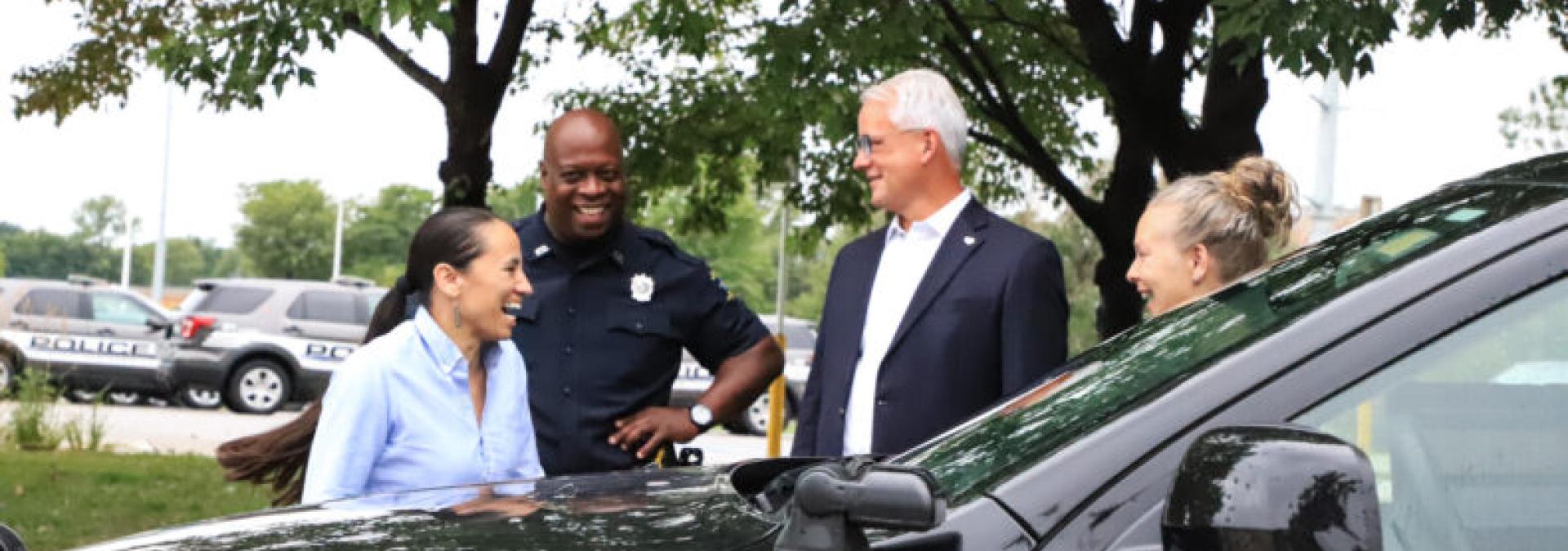Davids Announces Federal Grant to Help Eliminate Kansas’ DNA Backlog

Today, Representative Sharice Davids announced the U.S. Department of Justice has awarded the Kansas Bureau of Investigation (KBI) with $530,000 to speed processing times of forensic DNA samples. The federal grant, provided by the DNA Capacity Enhancement for Backlog Reduction (CEBR) Program, will help Kansas law enforcement reduce violent crime, support local prosecutors, and create safer communities across the state.
“Since coming to Congress, it’s been my mission to boost support for Kansas law enforcement, so folks can feel safe and protected in our community,” said Davids. “Working to eliminate the current DNA backlog will help ensure our justice system moves efficiently and Kansans are protected. I’m proud to have brought these new investments home to Kansas, especially for the KBI laboratory in Kansas City, KS.”
Since at least 2009, the KBI has dealt with a DNA backlog that has reached more than 31,000 delayed tests at times. While national statistics on backlogged DNA cases are difficult to track, the U.S. Government Accountability Office (GAO) found that the number of backlogged requests for crime scene DNA analysis jumped by 85% nationally between 2011 and 2017.
“The KBI relies on these federal dollars in order to more efficiently analyze DNA evidence,” said Tony Mattivi, Director, Kansas Bureau of Investigation. “We are grateful for Representative Davids’ support and the assistance of the entire congressional delegation in our efforts to enhance public safety.”
To promote safer communities, the new federal investment will be used to:
- Hire two new forensic scientists to reduce backlog and improve turnaround times;
- Provide training and required continuing education for analysts;
- Provide additional employee pay for the completion of supplementary casework tasks;
- Replace an aging real time quantitation instrument;
- Purchase new laboratory supplies for the validation of the new quantitation instrument;
- Purchase appropriate technology to provide a large, safe, and secure network storage location for electronic DNA files.
“Law enforcement agencies, including the Kansas Bureau of Investigation, ensure the safety and well-being of our communities – and Kansas’ three DNA testing laboratories are an essential part of their work,” said KansasGovernor Laura Kelly. “This funding will be essential to create more jobs for scientists and technicians, purchase modern technology, and decrease backlogs and wait times on critical DNA tests.”
Since being sworn in, Davids has worked to provide Kansas law enforcement officers with the tools needed to keep communities safe. She secured funding for the Olathe Police Department’s Mobile Command Unit and announced federal resources to hire additional law enforcement officers in Wyandotte County. She previously voted for historic, bipartisan gun violence prevention legislation to keep Kansans safe and a bill giving officers access to disability benefits for job-related PTSD. Most recently, she went on a ride-along with an Overland Park law enforcement officer and participated in trainings at the Johnson County Regional Police Academy.
Background
The KBI Forensic Science Laboratory is responsible for the analysis of evidentiary samples from possible crimes for all state and local law enforcement agencies and medical examiners offices within Kansas. The KBI has four laboratories within the system, three of which conduct DNA testing. The three laboratories conducting DNA testing are in Great Bend, Topeka, and Kansas City. The KBI laboratory in Topeka also houses the Databank Laboratory.
The DNA CEBR Program increases the number of forensic DNA and DNA database samples processed for entry into the Federal Bureau of Investigation's Combined DNA Index System (CODIS) by providing funding for laboratories to process DNA samples and to increase their capacity to process the DNA samples for CODIS upload.
Federal funding for this grant was authorized by the Consolidated Appropriations Act, 2023, which Davids voted to support in 2022. Davids and Senator Jerry Moran were the only two members of Kansas’ congressional delegation to support this funding.